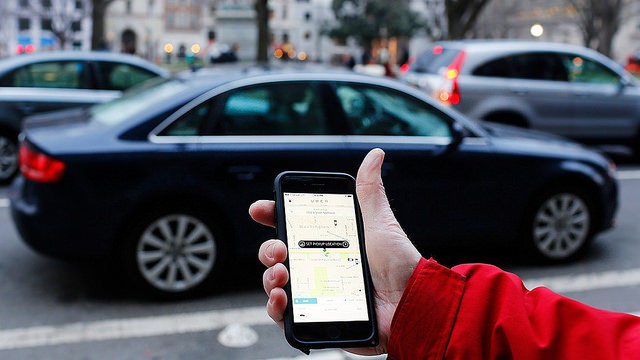The San Francisco City Treasurer José Cisneros announced on April 15 that he had sent letters to over 37,000 taxi drivers who were listed as contractors, demanding that they get a business license or cease work in the city.
Prior to this motion, companies like Uber and Lyft had been draining the money away from regular registered taxis, so Cisneros’s planning comes right on time.
By charging $91 for a business license in both the current year and for past years, Cisneros insures that independent contractors will either leave the city or generate income for it, which is much needed since there has been a loss in the revenue of local taxi drivers.
Months prior to Cisneros’ intervention, Uber had taken many of the customers of earlier taxi operations due to its easy accessibility via the Uber app and lower costs.
In truth, the marketing strategy of Uber was brilliant but sneaky. It not only gained mass support and generous profits through an extended market, but did so with no risks through its employment system. Through the usage of contractors instead of employees, the company did not have to provide anything besides communication, while workers were required to use personal possessions for their own functions.
Due to the fact that its workers were listed as independent contractors, Uber had been guzzling money off the fact that it need not pay benefits or cover workers for driving incidents. In addition, whenever there were these incidents, the fee would almost always come at the price of the driver, who in some cases, was fired by Uber immediately after submitting to these fines.
However, despite Uber’s evasion plan of hiding behind its contractors, Cisneros’s much needed plan goes directly toward injuring the company by hitting on its workers.
The induction of business licenses will cause Uber drivers to either quit their jobs or pay the $91 for each year that they have worked. And in the case of the latter, this will cause outrage in the contracted driver community, who do not want to be listed in a city data base, nor pay the fee.
The method employed by Uber may certainly bring great profits, but it comes at the risk of the contractors and customers. Having not provided anything directly, the taxi company is not in any way responsible for the maintenance of its vehicles or liable for damages, leaving much possibility for error.
Not being responsible for what their drivers do, Uber can hire anyone without precautions since there are no fears of repercussions. Business licenses would change this aspect. As soon as workers gained their licenses, the city would publicly display their data to customers, allowing for a safer service and better identification of drivers.
Yet, in response to the licenses, Uber simply shrugged by stating that it is the contractor’s duty and not Uber’s to make sure that they stick to city regulations.
But in truth, this is simply a façade by the company. It would seem that the business permit comes out of the pockets of Uber instead of drivers; given that the workers are in the day service of Uber, this would indicate that these people be recognized as employees.


